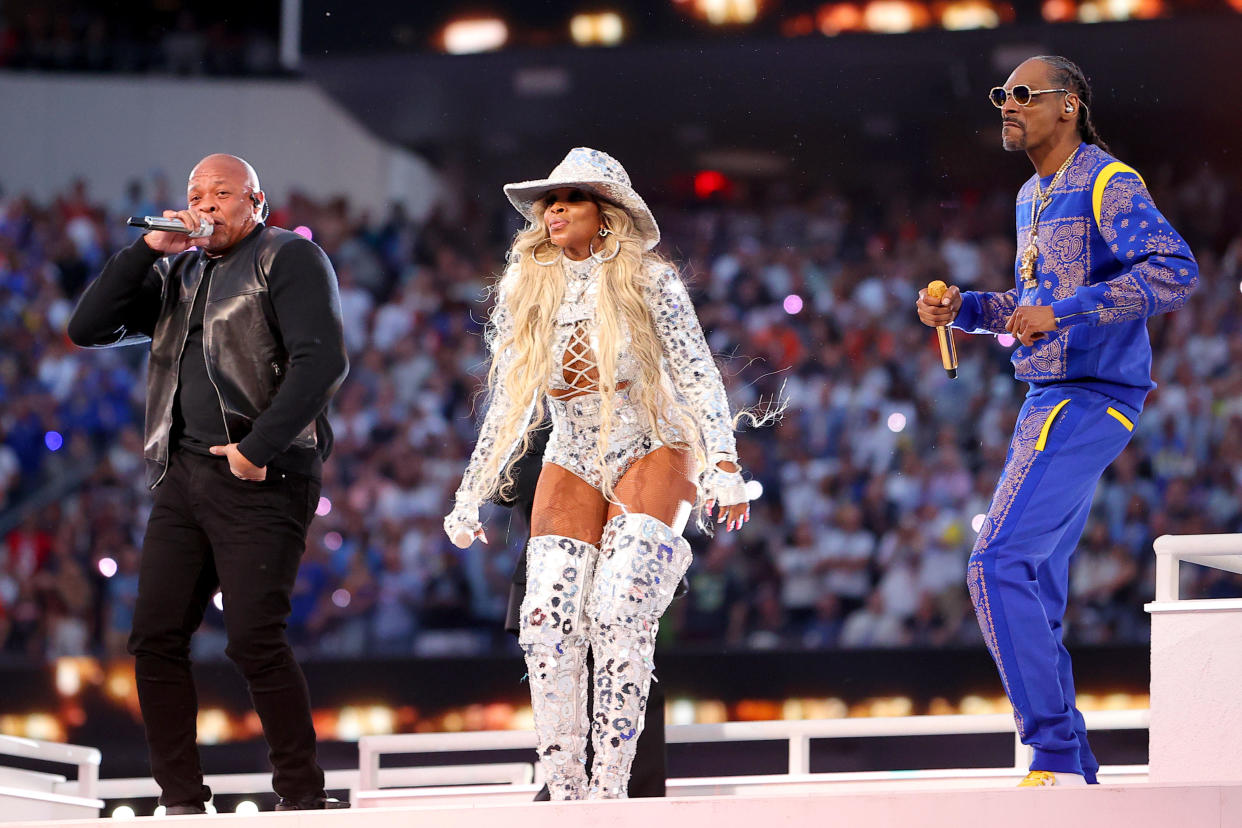Dr. Dre says he had 3 strokes while in hospital for brain aneurysm
Dr. Dre said he endured three strokes while he was hospitalized for a brain aneurysm in January 2021.
"It's just something that you can't control that just happens, and during those two weeks, I had three strokes," the rapper and producer told James Corden last week in an interview.
"I got up, and I went on about my day, and I thought that I could just lay down and take a nap," Dr. Dre recounted on SiriusXM's "This Life of Mine with James Corden," adding that a friend of his son's who was with him said they needed to go to the hospital.
"So they took me to urgent care," Dr. Dre said, where he was told his condition was serious. "Next thing you know, I'm blacking out. I'm in and out of consciousness, and I ended up in the ICU. I was there for two weeks. I'm hearing the doctors coming in and saying, 'You don't know how lucky you are.'"
"Nobody could give me an answer," he said when asked what doctors told him might have prevented the aneurysm.
"I had no idea that I had high blood pressure or anything like that," Dr. Dre said to Corden. "I'm lifting weights, I'm running, I'm doing everything I can to keep myself healthy."

"High blood pressure in Black men, that's just what it is. They call it the silent killer," he said. "You just have no idea."
Strokes, which are a leading cause of death in the U.S., occur when the blood supply to part of the brain gets blocked or when a blood vessel in the brain bursts, according to the Centers for Disease Control and Prevention. Strokes can cause brain damage, long-term disability and death.
According to the American Stroke Association, strokes and stroke deaths are higher among Black Americans than any other racial group in the U.S.
"Not all the reasons are clear why Black people have an increased risk of stroke," the ASA says. "We do know that there is a higher number of risk factors and societal challenges that may underlie new cases of stroke in Black Americans. The experience of racism results in chronic discrimination, stress, and depression that adversely impacts Black Americans."
Stroke risk factors that affect Black Americans include high blood pressure, obesity, diabetes, high cholesterol and smoking, according to the ASA.
Dr. Dre said the intense experience "definitely makes you appreciate being alive, that's for sure ... It's crazy, so now knowing that I had no control over that. It's just something that could happen out of the blue."

In January 2021, when Dr. Dre was recovering at Cedars-Sinai Medical Center in Los Angeles, he said in a social media post that he was "doing great and getting excellent care from my medical team."
"I will be out of the hospital and back home soon. Shout out to all the great medical professionals at Cedars. One Love!!" he wrote.
Almost exactly one year later, Dr. Dre headlined the Super Bowl LVI halftime show alongside Snoop Dogg, Mary J. Blige, Eminem, Kendrick Lamar and 50 Cent.
Oprah Winfrey opens up about using weight-loss medication in new TV special
